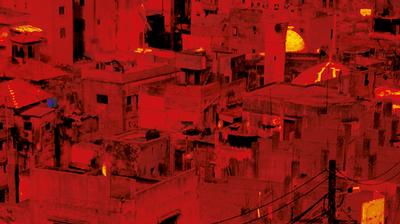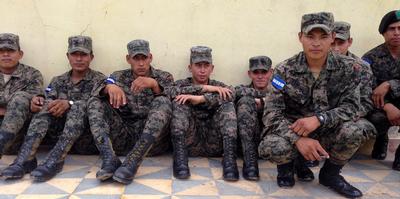Everyday Maneuvers: Military - Civilian Relations in Latin-America and the Middle East
What is the Everyday Maneuvers project?
Military-civilian relationships go to the heart of a nation''s culture and politics. In most countries in the Middle East, the military''s influence over social life and politics, its economic interests, its ability to protect populations, secure the nation and define its allies and its enemies are central factors shaping the relationship between the state and civil society. The dramatic transformations that the ''Arab spring'' appeared to promise was closely linked to whether and how the military defied, embraced or co-opted uprisings and popular protests in their countries.
In Latin America, the military''s current role in shaping society is less visible. In the past, military power, actions and influence were at the heart of social and political struggle. But even as the era of military dictatorships are over, the faultlines of the relationship between military and civilian authorities, the relationship between the civilian population and the military, and the military''s role in the economy, are still key entrances into understanding social and political processes at the continent.
In this project we will place the experiences of the two regions into the same analytical, comparative framework. Our ambition is to understand how the ways in which the military are intertwined in and interacts with wider society through what we call "everyday maneuvers". This project will map out the historical, cultural and political universes in which military actors and civilians make sense of their country and their place within it, recognizing that this is always a negotiated process. A central analytical question for us is to understand the military''s evolving position and positioning vis-à-vis democratic demands and popular mobilization. To this end, we seek to understand the military as an institution; situated within broader faultlines of class, race and religion, but at the same time with its own specific ideologies, culture and internal hierarchies.
The project gathers researchers from anthropology, history, law and political sciences, and has a strong methodological component based on in-depth ethnographic fieldwork.
This project is structured around the following themes and key questions:
- Culture, religion and ideology: What kind of values and ideals are instilled in military personnel of various ranks? What is the cultural impact of international networks and alliances, through which military officers interact with forces from other parts of the world? Can we find differences in cultural values and ideological dispositions between military officers of different generations? Can we find different characteristics of gender, class and ethnicity within the militaries of both regions? What difference has women serving in the military made to military-civilian relations? How is this reflected in the military''s attitude towards democratic reforms, their willingness to submit to civilian authority, and in their ways of dealing with political dissent?
- Politics and economics: What kind of connections do we find between military leaders and political elites? To what extend is the military subject to civilian overview and command? What are the economic interests of the military, and in what ways can these be affected by political changes?
- The military''s position and internal structure: What is the position of the military in relation to other components within the security sector? Is the military a primary agent of coercive power, or is it overshadowed by secret police, private contractors or other security agents? What constitutes the military''s social base of recruitment? What is the relationship between general conscripts and military elite divisions? Does internal mechanism of advancement privilege certain groups on the basis of social criteria such as class, religion, ethnicity or tribal affiliations?



















